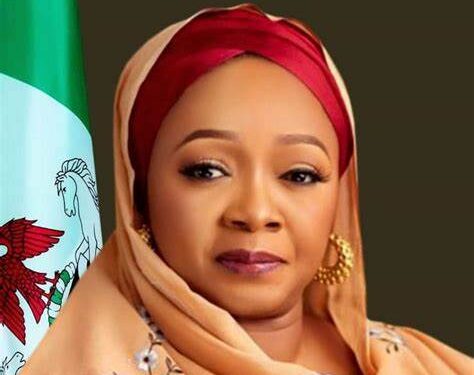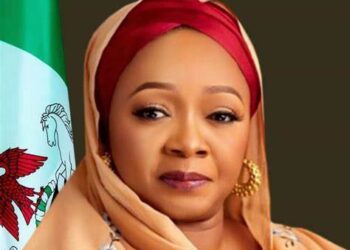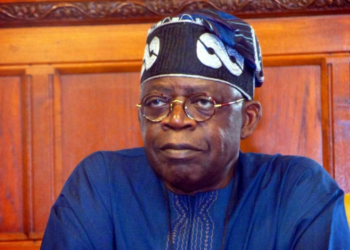The Minister for Women Affairs, Imaan Sulaiman-Ibrahim, revealed that 30 per cent of Nigerian women and girls aged between 15 and 49 have experienced physical or sexual violence at some point in their lives.
She made this statement on Monday in Abuja during a press briefing and flag-off ceremony marking the commencement of the 16 Days of Activism Against Gender-Based Violence (GBV), held at the Ministry’s headquarters with the theme “Unite Campaign: Towards Beijing to Prevent Violence Against Women and Girls.”
The minister, who described GBV as a societal issue and an impediment to development, expressed concern over the statistics in the country.
She said the statistics show women and girls at great risk, stressing that “the growing trend represents a gross violation of human rights and undermines the very fabric of the society, thereby preventing women and girls from achieving their full potential.
“Gender-based violence is not just a women’s issue; it is a societal issue, a human rights issue, and an impediment to our nation’s development.
“The statistics before us on GBV in Nigeria remain deeply troubling. Even as we embark on this campaign today, a little child has just been violated, a woman has just been abused, and a young girl’s life is at risk somewhere in a community, all for no just cause.
“Current reports indicate that 30 per cent of Nigerian women and girls aged between 15 and 49 years have experienced physical or sexual violence at some point in their lives,” she stated.
Violence extends beyond homes
The minister noted that violence occurs not only in homes, but extends to schools, workplaces, and communities.
“Violence does not know any tribe or creed, it cuts across social and economic boundaries. It affects both young and old. The most vulnerable; our young girls, women in conflict-affected areas, and those living with disabilities face even greater risks.”
“This growing trend is unacceptable, represents a gross violation of human rights, and hinders women and girls from achieving their full potential. It also stalls our nation’s progress towards inclusive development. ”
- She urged the media partners to play a crucial role in this campaign, and as we observe the 2024 Unite Campaign in Nigeria, we must collectively adopt a multi-sectoral and multi-stakeholder approach to tackle this pervasive issue.
- Sulaiman-Ibrahim outlined plans to involve traditional and religious leaders in combating harmful cultural norms that perpetuate violence. She emphasized the need for education and community mobilization to challenge stereotypes and end harmful practices.
- The Minister affirmed that the Ministry, in collaboration with its partners, will host a range of activities nationwide during the 16-day campaign. These include sensitization drives, school visits, workshops, and an awareness walk to the National Assembly.
The initiatives will also focus on empowering girls in rural areas and enhancing survivor support through Nigeria’s network of 47 Sexual Assault Referral Centres.
She noted, “We are committed to strengthening legislation and ensuring its implementation. Today, we celebrate Bauchi State for domesticating the Child Rights Act (2003), completing all 36 states, and 35 states now implementing the Violence Against Persons Prohibition (VAPP) Act (2015).”
UN Women highlights economic impacts of GBV
Ms. Beatrice Eyong, the Country Representative of UN Women to Nigeria and ECOWAS, emphasized that gender inequality and GBV hinder Nigeria’s progress, costing the nation 1.5% of its GDP annually.
She noted that 42% of women remain financially excluded, with women holding less than 5% of elective positions.
“GBV is everywhere, it is not good for either the men or the women. It has the capacity to reduce economic growth if this is not reduced, we will never come out of poverty. It is not just a human rights issue, it is an economic issue.
“The funding for gender equality and women empowerment has reduced, and as experts, we have to think of innovative ways to mobilize funds to fight the menace,” Eyong added.
Also, Gabriel Aduda, the Permanent Secretary of the Ministry of Women Affairs, called on stakeholders to move beyond rhetoric and intensify efforts to tackle the root causes of GBV.
He stated, “Each law we enact, every program we implement, and every survivor we empower brings us closer to a Nigeria where women and girls can live free from fear and violence.”

















